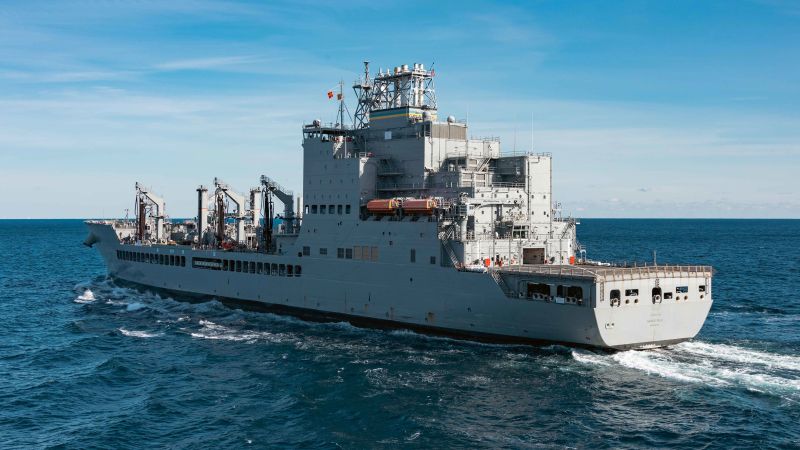Greta Thunberg Joins Aid Flotilla Challenging Israeli Blockade of Gaza

Jerusalem – In a dramatic escalation of tensions surrounding the ongoing blockade of the Gaza Strip, Israel has declared its intention to intercept a humanitarian aid boat carrying prominent climate activist Greta Thunberg and a diverse group of international activists. The vessel, part of a larger flotilla, aims to break through the Israeli naval blockade and deliver essential supplies to the besieged Palestinian territory.
The incident has triggered a wave of condemnation from human rights organizations and pro-Palestinian groups, who accuse Israel of obstructing humanitarian aid and violating international law. The Israeli government, however, maintains its blockade is necessary for security reasons, citing concerns about weapons smuggling into Gaza by Hamas, the militant group that controls the territory.
Thunberg's Participation Highlights Growing International Scrutiny
Greta Thunberg's decision to join the flotilla has significantly amplified the international spotlight on the Gaza blockade. The young climate activist, known for her unwavering advocacy for environmental action, has framed her participation as a protest against the humanitarian crisis in Gaza and a broader condemnation of policies that exacerbate inequality and suffering. Her presence underscores the growing convergence between climate justice and human rights concerns.
“We cannot stand idly by while people are deprived of basic necessities and fundamental freedoms,” Thunberg stated in a pre-departure message. “The blockade of Gaza is not only a humanitarian tragedy but also a violation of international law. We are compelled to act.”
Israel's Stance and Potential Confrontation
Israeli officials have repeatedly warned that they will prevent the boat from reaching Gaza, asserting their right to enforce the naval blockade. The Israeli Navy is expected to intercept the vessel in international waters, potentially leading to a confrontation. Past flotilla attempts have resulted in violent clashes, raising concerns about the safety of the activists onboard.
“We will continue to enforce the maritime blockade to prevent weapons from entering Gaza,” a spokesperson for the Israeli Defense Forces (IDF) stated. “We urge the activists to reconsider their actions and avoid endangering themselves.”
The Blockade and its Impact on Gaza
The Israeli blockade of Gaza, imposed in 2007, has severely restricted the movement of people and goods into and out of the territory. The United Nations and human rights organizations have repeatedly criticized the blockade, arguing that it constitutes collective punishment and has contributed to a dire humanitarian situation in Gaza, where unemployment is high and access to essential services is limited.
The blockade has also been blamed for hindering Gaza's economic development and restricting the ability of its residents to rebuild after years of conflict. Critics argue that the blockade is unsustainable and that a more comprehensive approach is needed to address the underlying causes of the conflict.
International Reactions and Future Prospects
The planned interception of the aid boat has drawn mixed reactions from the international community. While some countries have expressed concern over the potential for violence, others have voiced support for the activists' efforts to challenge the blockade. The incident is likely to further complicate relations between Israel and its international partners.
The outcome of this latest attempt to break the blockade remains uncertain. However, one thing is clear: the situation in Gaza continues to be a source of significant tension and a challenge to the pursuit of a lasting peace.






